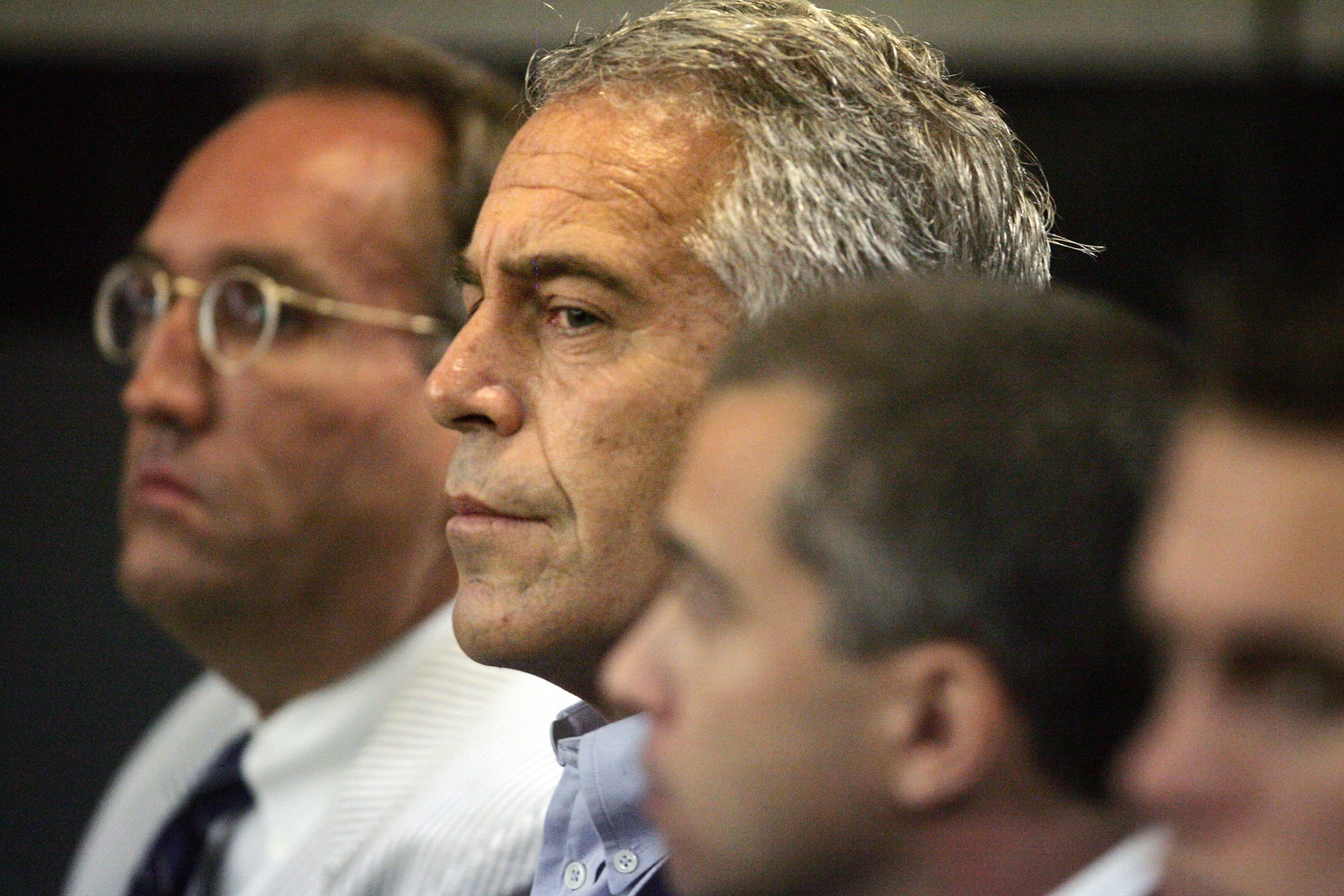The woman who provided critical evidence that allowed federal prosecutors to accuse Jeffrey Epstein of sexual trafficking in 2019 is speaking publicly for the first time, urging legislators to free records related to the convicted sexual offender to help their victims to heal.
The sources say that Marina Laceda, 37, was identified in Epstein’s accusation in 2019 as “minor of victim 1” and provided key information that helped prosecutors put the sexual offender after bars.
Speaking publicly for the first time in an interview with ABC News, Laceda asked the Trump administration to publish its records related to Epstein and encouraged other survivors of abuse to present themselves.
To see the full interview, tune in “Good Morning America” by ABC on Wednesday at 7 am et.
“I would like them to give transparency to all the victims, the right thing, to what happened and released these archives. It is also not only for the victims, but for the American people,” La Perda told Lensey Davis of ABC News about Epstein, the Rico Financial and the sentenced sexual offender who died for suicide in a New York budget in 2019.
Federal investigators first contacted Laceda in 2008, but Epstein assured a controversial and once secret Non -Prosecution Agreement with federal prosecutors before being able to tell a grand jury about his accusations of child sexual abuse. The researchers returned to Laceda more than ten years later, using their experiences to build a case that accused Epstein of sexual trafficking children in New York.
According to the accusation, Laceda met Epstein for the first time when he was 14 in 2002 when she was recruited to get to her Palaciega house in New York to provide a massage to Epstein, an interaction that finally led to years of sexual abuse.
“His house was a rotating door. There were always girls,” Laceda told ABC News. “If I were in New York, he had his week prepared to see as many girls as possible. I would say he was seeing five to eight women, maybe even more, maybe up to ten women a day.”

Jeffrey Epstein in the Court at West Palm Beach, Florida, July 30, 2008.
Uma Sanghvi/The Palm Beach Post through AP
After emigrating from Brazil with his family, Laceda said he lived in Queens and shared a single bedroom with his mother and sister when he met Epstein. A friend presented her for the first time to the financial, framing him as an opportunity to earn money to keep her family.
“She had said that, you know, I was going to massage someone and there weren’t many details,” Laceda said. “I didn’t expect what he led to that day because I think with Jeffrey Epstein, he starts somewhere, but then ends. Or having sex with them if you like or not.”
For the next three years, Laceda said it became part of a growing network of girls recruited by Epstein in New York, gathering and forced to have sex with the financial dishonor two or three times a week.
“He forced me to have sex with him. Basically. He really had no choice,” he said.
Laceda said Epstein finally paid thousands of dollars, and believed that being associated with the financial would open doors for her as a Brazilian immigrant.
She recalled that Epstein showed photos of celebrities and high profile politicians in her home, and that she made phone calls with high profile people.
“I thought that if I only played, it would not be this immigrant from Brazil, you know, and that it would have something to look forward,” he said.
But Laceda said that Epstein’s interest in her vanished as she grew, and began recruiting other young women for him.
“He reached a point where he was, I would say, 16 and a half or 17. He didn’t love me anymore. It was like, you’re too old,” he said.
Years later, Laceda said the FBI agents arrived at their door to ask Epstein questions. She said he immediately called Epstein, who provided him with a lawyer. While preparing to talk to the Grand Jury in 2008 about Epstein, the opportunity was reduced when Epstein obtained an agreement with prosecutors.
“I would have felt much better today talking if I could speak in 2008,” he said. “If they gave me the opportunity to speak, these women would not go through this.”
Eleven years later, the FBI contacted Laceda again, while New York prosecutors opened a case in Epstein. His experience finally provided prosecutors with key information to unravel their alleged network of child sexual abuse in New York.
The Trump administration has been dealing with the consequences of its decision not to publish materials related to Epstein research after the recoil he received from Maga’s supporters after he announced last month that additional files will not be published.
It is rumored that Epstein, whose private property of the island was in the virgin islands of the United States, maintained a “list of customers” of celebrities and politicians, that the right -wing influencers have accused the authorities without foundation of the hiding place.
The Department of Justice and the FBI announced in July that they had not found evidence that Epstein maintained a list of clients, after several senior officials, before joining the Administration, had accused the government of protecting information about Epstein’s case.
On Tuesday, Laceda met with legislators of Congress along with other Epstein survivors. Decades after his abuse, he said that Epstein’s incessant coverage and the lack of transparency only exacerbate the damage suffered by his victims.
“We need to have transparency. We need Epstein files to be out,” he said. “Today I talked about that, I want to have my files to start healing.”






